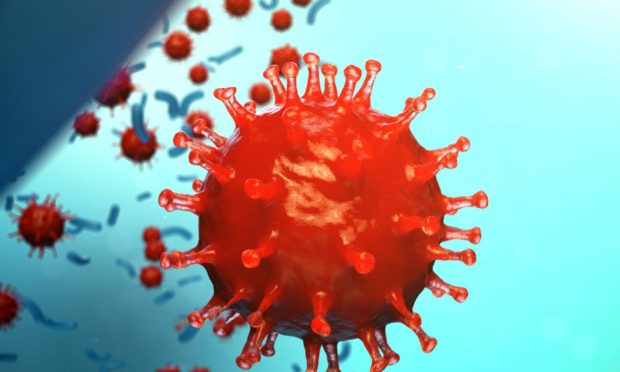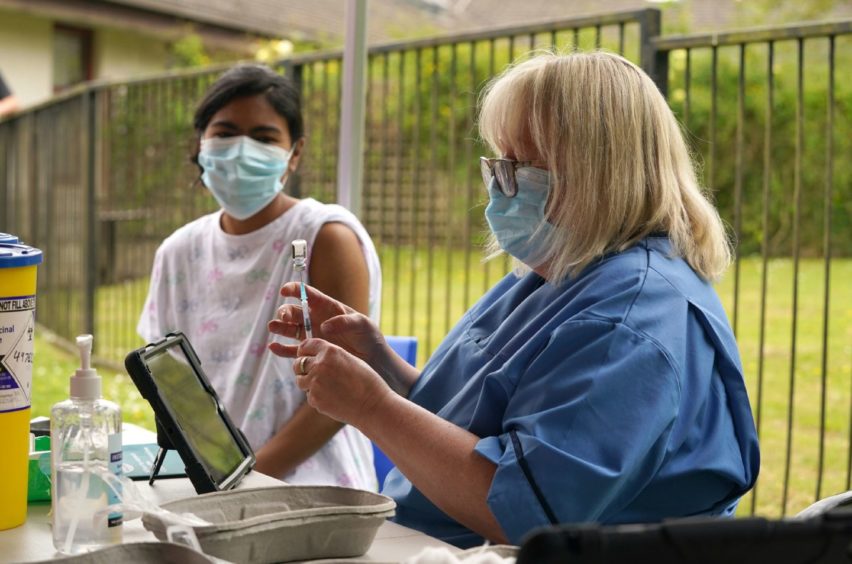New figures have backed up claims Scotland’s high Covid-19 case rate is partly because the country has lower levels of immunity than elsewhere in the UK.
Professor Jason Leitch recently said the Scottish population has lower “natural immunity” and this has contributed to the country becoming the Covid-19 capital of Europe.
And the latest survey by the Office for National Statistics (ONS) up to June 14 suggests he could be right.
At 84.7%, the number of people estimated to have antibodies in Scotland is several percentage points behind Wales, England, and Northern Ireland.
The rate is despite Scotland delivering the highest number of vaccine first doses alongside Wales.
The level of antibodies will have risen further since the surveillance was carried out after Scotland’s infections soared in late May and early June.
Infections have continued to rise ever since but experts have warned it’s still too early to talk about herd immunity.
Early this week, Jason Leitch, Scotland’s national clinical director, said the “fundamental” reason is the spread of the Delta variant but immunity is also contributing.
He said: “It’s got seeded into our biggest, dense city in Glasgow and we’ve got less natural immunity because we haven’t been at the top of this league table throughout the pandemic.
“It’s not a league table I want to top and I want to get us off there as quickly as we possibly can.”
He also warned many other parts of Europe are likely to see a third wave fuelled by the more infectious Delta variant.
And people gathering to watch Euro 2020 matches were “part of the problem” the virus has spread more easily in Scotland since June, he added.
Why are antibodies important?
It takes between two and three weeks after infection or vaccination for the body to produce enough antibodies to fight any infection.
Having these can help to prevent individuals from getting the same infection again, or if they do get infected, they are less likely to have severe symptoms.
Once infected or vaccinated, antibodies remain in the blood at low levels and can decline over time.
The length of time antibodies remain at detectable levels in the blood is not fully known.
This is why booster jabs for over 50s, potentially in the autumn, are currently being discussed.
The ONS estimate is based on blood test results taken from a randomly selected subsample of individuals aged 16 years and over in the community.
This is people from private residential households and excludes those in hospitals, care homes and/or other institutional settings.

